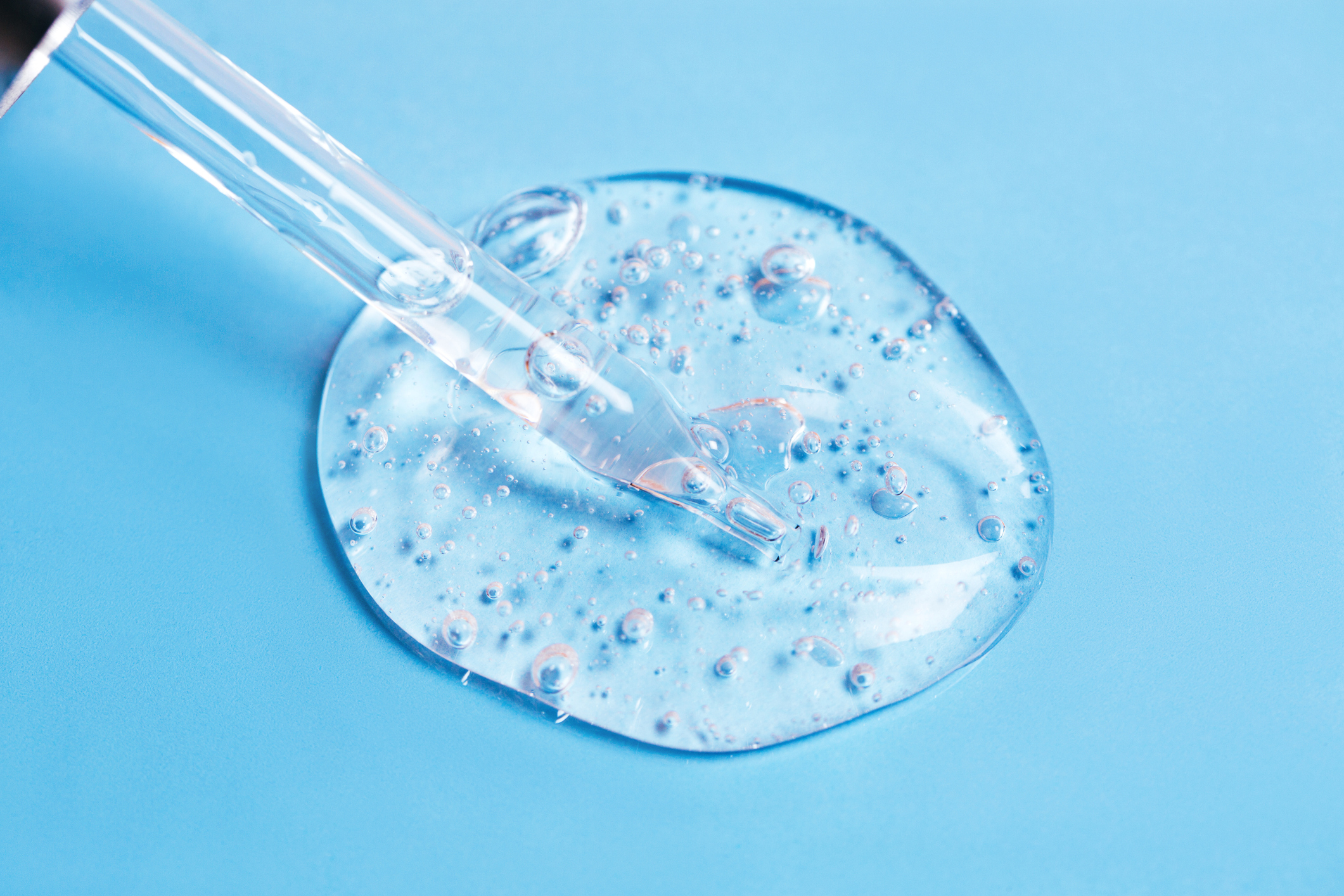Is hyaluronic acid good for acne? Here's what we know
If you’re dealing with dry, acne-prone skin, hyaluronic acid might just help.

There’s a lot of talk about how different acids can work for or against acne-prone skin. But, despite the name, hyaluronic acid isn’t really an acid at all. So, is hyaluronic acid good for acne?
We checked in with Samantha Keighley, the midwife-turned-skincare blogger behind Skin Acid Trip, to find out if it’s a friend or a foe. “Hyaluronic acid is neither good nor bad for acne,” she says. “However, it can be used incorrectly, or it can be mixed with other ingredients that may not agree with a person’s skin and therefore cause a breakout.”
With that in mind, we've pulled together the good, the bad, and the best practices for applying the best hyaluronic acids to acne-prone skin.
Hyaluronic acid and acne: When is it good?
Also called hyaluronan or HA, hyaluronic acid is actually a type of sugar commonly found in skin and other body tissues. “It is able to combine with water and swell when in gel form, causing a smoothing/filling effect,” according to the FDA, making it a darling of the skincare industry.
Keighley notes that it’s a humectant, meaning “it can draw moisture from its surroundings to hydrate the skin and make it appear plump and supple.”
Achieving smoother, more hydrated skin from a polysaccharide our bodies already produce sounds great—but is it right for acne-prone skin?
HA is not an effective spot treatment, and it’s not like other powerhouse products designed to clear up acne and soothe breakouts. But hyaluronic acid can work for your skincare routine if you take the right approach and use it to keep sensitive skin hydrated.
No matter how you look at it, dehydrated skin aggravates acne. It can trigger the production of excess oil, dead skin cells that clog your pores, and cracks that are vulnerable to acne-causing bacteria. Hyaluronic acid can help prevent dry skin and slow down this process.
- Hyaluronic vs retinol: what's the difference between these two skincare heroes?
- Is too much hyaluronic acid bad for your skin? The experts have spoken

Does hyaluronic acid help with acne scars?
Given its plumping powers and smoothing results, HA can help minimize the appearance of acne scars—but only when it’s injected as a dermal filler. In one study, participants with acne scarring experienced an “immediate visual improvement” after several injections of a hyaluronic acid filler.
Topical HA gels and serums won’t have the same impact, but they still offer at-home hydrating benefits.
How should you apply hyaluronic acid to avoid acne or breakouts?
If you want to nourish your dry skin and minimize breakouts, choosing the best hyaluronic acids made with high-quality ingredients is a good start. But it’s not enough to apply HA directly to dry skin.
Keighley recommends “applying the hyaluronic acid serum on damp skin and locking the hyaluronic acid in with a moisturizer over the top.”
She says it’s essential to first pat or mist your face with water to give the product a source of moisture to start with. “Otherwise, hyaluronic acid will instead steal water from deep in your skin, which in turn will lead to dehydration.”
After moistening your skin and applying hyaluronic acid, follow up with a moisturizer. If you skip this step, Keighley explains that this can cause a process known as trans-epidermal water loss that leaves you with even drier skin and a higher chance of experiencing acne.

Hyaluronic acid and acne: When is it bad?
When you’re choosing a serum or gel with hyaluronic acid, it’s important to skim over the rest of the ingredients list. This way, you can make sure you’re not applying something that will aggravate your acne.
Kristin Gunn, a licensed medical aesthetician, and owner of Beaux Medspa tells us you’re safe to use HA, “as there are not other acne-causing ingredients in the formula. Some ingredients known to flare up acne are ferulic acid, dimethicone, and almond oil.”
Keighley also warns against AHAs, BHAs, and retinoids. These “can cause an increase in skin cell turnover which can lead to purging—a breakout of spots in areas where you would normally get acne. However, hyaluronic acid does not increase skin cell turnover; it’s purely a hydrating skincare ingredient.”
In short, hyaluronic acid isn’t to blame for any breakouts. Just be mindful that some products containing HA may cause trouble for acne-prone skin.
The My Imperfect Life team is all about helping you navigate your world. We bring you the latest on fashion, beauty, travel and wellness so you can live life on your terms.